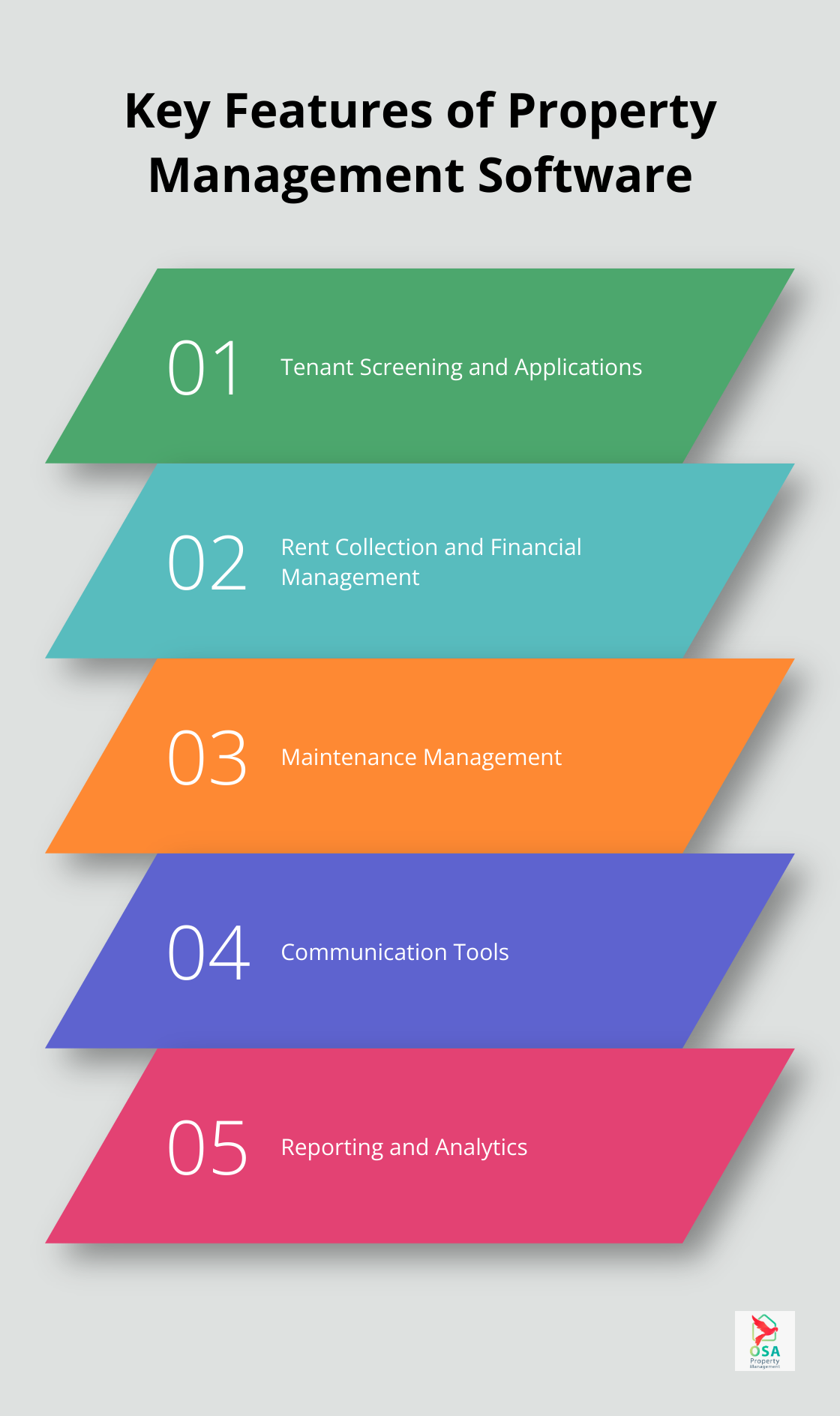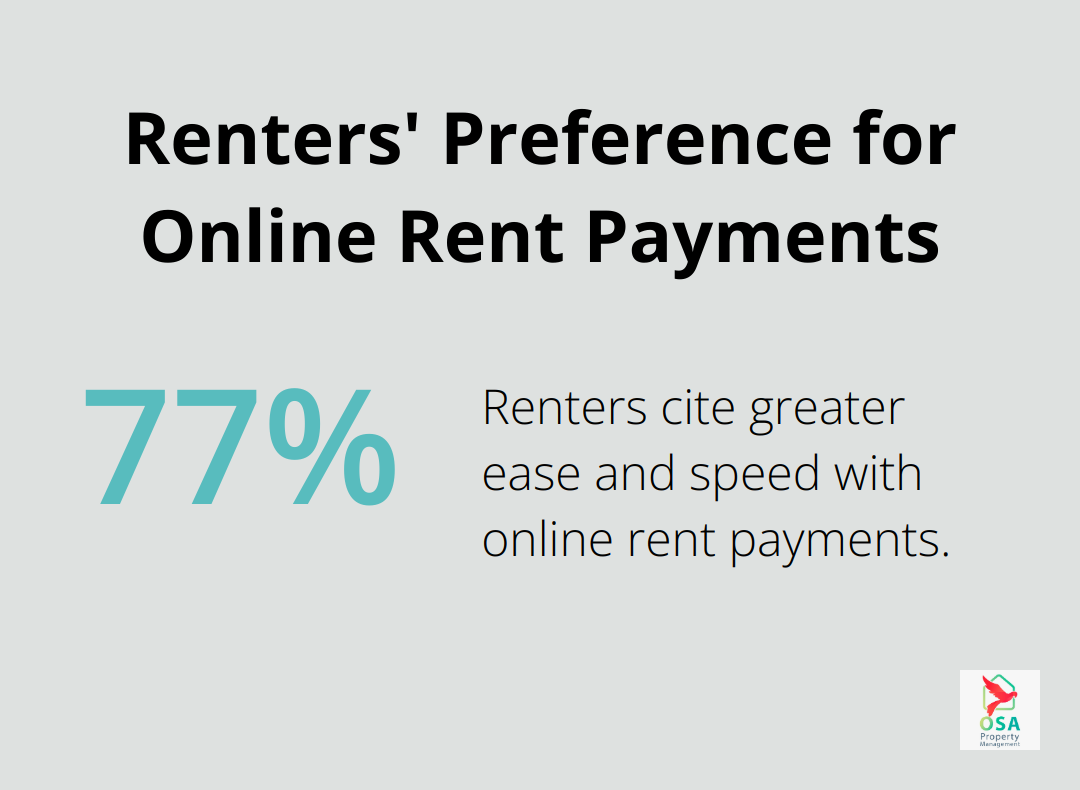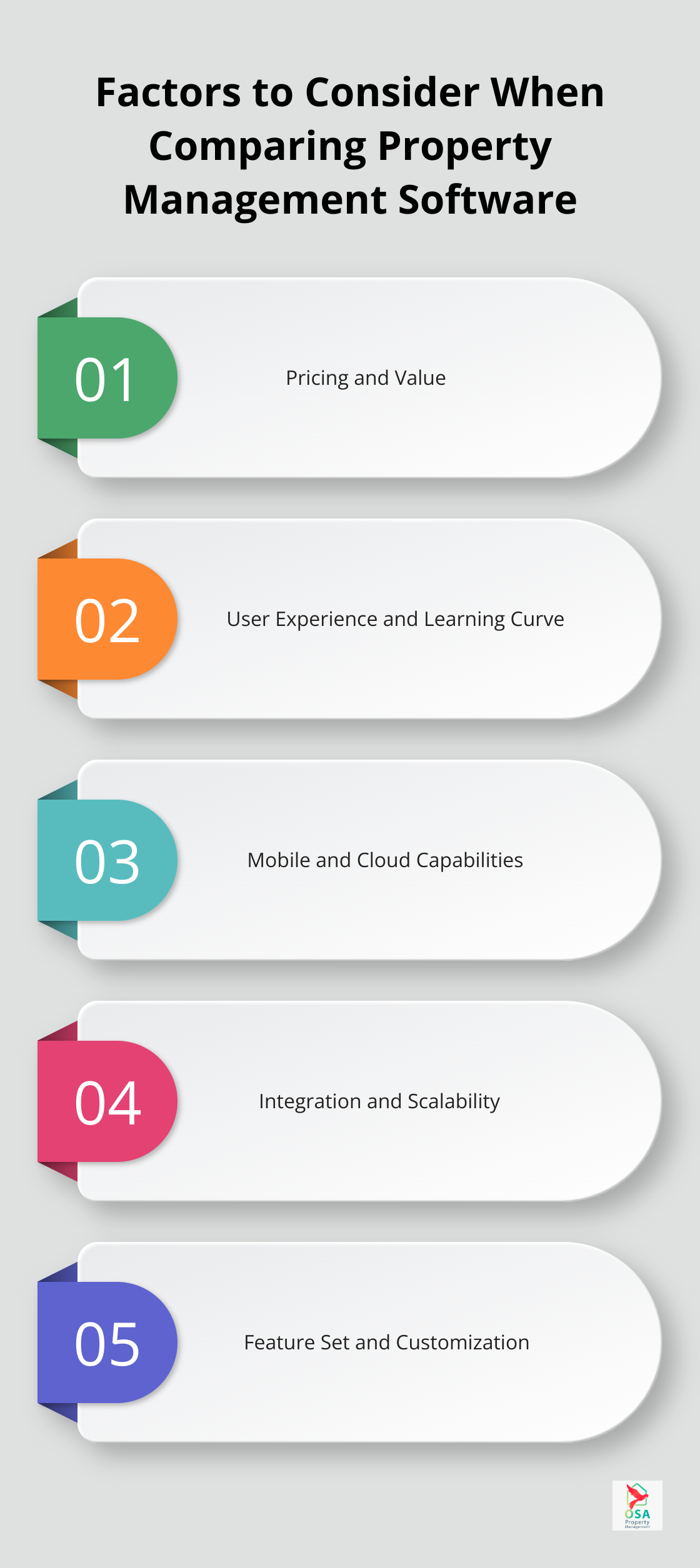At Osa Property Management, we understand the challenges small landlords face in managing their properties efficiently.
Property management software for small landlords can be a game-changer, streamlining operations and saving valuable time.
However, with numerous options available, choosing the right software can be overwhelming.
This guide will help you navigate the selection process and find the perfect solution for your needs.
What is Property Management Software for Small Landlords?
A Digital Tool for Efficient Property Management
Property management software is a digital tool that simplifies and automates various aspects of rental property management. For small landlords, it serves as a powerful ally to streamline operations, reduce administrative burdens, and improve overall efficiency.
Tailored Solutions for Small-Scale Operations
Unlike enterprise-level solutions, property management software for small landlords focuses on essential features without overwhelming complexity. These platforms typically offer user-friendly interfaces and intuitive designs, making them accessible even for those with limited technical expertise.
Small landlords often handle multiple responsibilities, from tenant screening to maintenance coordination. Property management software consolidates these tasks into a single platform, allowing landlords to manage their properties more effectively. A landlord with 5-10 units can easily track rent payments, schedule maintenance, and communicate with tenants all from one dashboard.
Key Features That Benefit Small Landlords
The most beneficial property management software for small landlords includes features like online rent collection, tenant screening, and maintenance request tracking. These tools can significantly reduce the time spent on administrative tasks. The percentage of online rent payments has grown by 18% in the past year, with 85% of property managers believing that technology adoption is crucial.
Another important feature is financial tracking and reporting. Small landlords often struggle with bookkeeping, but good property management software can generate detailed financial reports, simplify tax preparation, and provide clear insights into property performance.
Scalability and Cost-Effectiveness
One of the main advantages of property management software for small landlords is its scalability. As your portfolio grows from one or two properties to ten or more, the right software can adapt to your changing needs without requiring a complete system overhaul.
Cost is also a significant factor. While enterprise solutions can be prohibitively expensive, many software options for small landlords offer tiered pricing or even free basic plans. This allows landlords to access essential features without breaking the bank, with the option to upgrade as their business expands.
The right property management software can transform a small landlord’s operations, save time, and reduce stress. The key is to choose a solution that aligns with your specific needs and growth plans. In the next section, we’ll explore the essential features to look for when selecting property management software for your small-scale rental business.
What Features Matter Most in Property Management Software?

Tenant Screening and Applications
Effective tenant screening protects your investment. Software should offer comprehensive background checks, credit reports, and eviction history. Many platforms integrate with services like TransUnion or Experian for accurate tenant data. A good system allows online rental applications, which simplifies the process for potential tenants and landlords alike.
Rent Collection and Financial Management
Online rent collection transforms small landlords’ operations. Software that enables automatic rent payments reduces late payments and saves time. More than half of renters prefer to pay their rent online, with 77% citing the greater ease and speed compared to traditional methods like paper checks. Look for features such as automatic late fee calculation and recurring payment options.

Financial tracking is equally important. The best software options provide detailed income and expense tracking (making it easier to generate financial reports and prepare for tax season). Some even integrate with accounting software like QuickBooks, which further simplifies financial management.
Maintenance Management
A robust maintenance management system improves tenant satisfaction and property upkeep. Software should allow tenants to submit maintenance requests online and track the progress of each request. This feature should also enable you to assign tasks to specific vendors and maintain a record of all maintenance activities.
Communication Tools
Effective communication is essential for successful property management. Software with built-in messaging systems centralizes all tenant communications, which makes it easier to keep track of conversations and respond promptly. Some platforms offer automated messaging for rent reminders or maintenance updates, which saves time and ensures consistent communication.
Reporting and Analytics
Data-driven decision-making can significantly improve your property management strategy. Software should provide detailed reports on key metrics like occupancy rates, rental income, and maintenance costs. These insights help you identify trends, make informed decisions about your properties, and ultimately increase your return on investment.
While these features are important, you should choose software that aligns with your specific needs and portfolio size. Some landlords might prioritize robust financial reporting, while others might focus more on streamlined tenant screening. The balance that works for your unique situation is key.
As you consider these features, it’s important to evaluate how different software options stack up. In the next section, we’ll compare popular property management software solutions to help you make an informed decision.
How to Compare Property Management Software

Pricing and Value
Cost often tops the list of concerns for small landlords. Property management software uses tiered pricing based on unit count. Look beyond the price tag to consider the value each platform offers. Some software may cost more upfront but save money long-term through increased efficiency and reduced vacancies.
User Experience and Learning Curve
The ease of use can make or break your software experience. Seek platforms with intuitive interfaces and comprehensive onboarding resources. Take advantage of free trials to test the software’s usability before committing.
Mobile and Cloud Capabilities
The ability to manage properties on-the-go proves invaluable in today’s fast-paced world. Cloud-based solutions offer real-time access to your data from any device, allowing quick responses to tenant requests or maintenance issues. Mobile apps have become increasingly common, providing robust mobile functionality for landlords and tenants alike.
Integration and Scalability
As your portfolio expands, your software needs may change. Select a platform that can scale with your business and integrate with other tools you use. QuickBooks integration (a common feature among many property management software options) simplifies accounting tasks.
Feature Set and Customization
Not all software is created equal. Some platforms excel in specific areas. Consider which features matter most for your specific needs and look for software that allows customization to fit your workflow.
While many excellent choices exist on the market, Osa Property Management provides a tailored approach that often delivers the most comprehensive and cost-effective solution for small landlords in Costa Rica. Our expertise in local markets and regulations (combined with our commitment to personalized service) offers a unique advantage that software alone can’t match.
Final Thoughts
Property management software for small landlords can transform your rental business operations. The right software will streamline tasks, save time, and boost overall efficiency. You should evaluate options based on your specific needs, portfolio size, and future growth plans.
We recommend you test different software through free trials and demos. This hands-on approach will help you determine which platform aligns best with your management style. Don’t hesitate to contact customer support teams with any questions during your evaluation process.
While software can be powerful, it may not address all property management complexities (especially in unique markets like Costa Rica). Osa Property Management combines local expertise with personalized service to help small landlords navigate these intricacies. We encourage you to explore how our professional services can complement your property management efforts.

